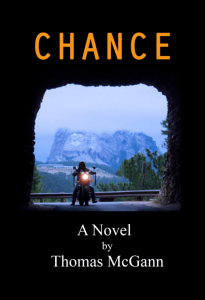To copyright or not to copyright, that is the question, but it should not be a question. To copyright is the only answer.
My post, Book Titles, Fonts and Copyright Changes, created a heady discussion about copyright problems, international and domestic, to a degree I had not anticipated, one that requires a continuing dialogue.
The Berne Convention of 1886 set forth basic international law regarding copyright, recognizing the copyrights of works of authors of all nations, in the same way that it recognizes the copyrights of its own citizens. It also required automatic, strong minimum standards while prohibiting mandatory registration. This means that your work is protected from the moment it is committed to some form of visual or audio copy.
The laws for copyrighting vary from country to country. In America, registration is made through the US Copyright Office. In Canada, you can register your work at the Canadian Intellectual Property Office. In the UK and AU, copyright is considered an “automatic right.” In New Zeeland, no registration is required, or even possible, other than that provided by the Berne Convention. Generally speaking, those governments that require/provide copyright services, charge fees of varying amounts depending on the service offered.
The date of copyright becomes important when there are conflicting claims of ownership. Once registered, as in places like the U.S. and Canada, the date becomes fixed. In places like UK, AU, and NZ a date can be established by sending a copy of the work to the applicable national library.
It is also a good idea to affix the copyright symbol ©, the year, your name and boilerplate copy such as, “ Except as provided by the Copyright Act no part of this publication may be reproduced, stored in a retrieval system or transmitted in and for or by any means without the prior written permission of the publisher.” The wording varies, so use whatever satisfies your paranoia.
There are also differences about what excerpts are allowed between “fair use” (US), e.g. commentary, research, criticism, parody, news, teaching, archiving and scholarship and “fair dealing” (UK), e.g. research, review, criticism, news, and parody. Generally, U.S. policies are a bit more stringent. Also, in the US, in the case of lawsuits, only registered works can collect damages and attorney’s fees.
The length of copyright also varies by country. In the US, a copyright is good for 70 after the author’s death. In the UK, it is good for 50 years after death.
The Myth of the Poor Man’s Copyright
For a more complete examination of the Poor Man’s Copyright click on the link above. It is a terrific, straightforward discussion of this subject, generously provided by Jonathan Bailey on his blog, Plagiarism Today.
In short, the Poor Man’s Copyright is the idea that you can write a book, compose a song, draw a picture, etc, seal it in an envelope, and send it to yourself with the assumption that the date on the envelope will prove that its contents were mailed on such and such a date, thereby protecting the author.
No such luck- for several reasons:
- There is no proof as to who created the work inside.
- Envelopes can be steamed open.
- You cannot sue in federal courts. Since the work in question was never registered nationally, any lawsuit becomes a local issue, subject to only local damages.
Read Mr. Bailey’s article for even more convincing arguments.
P.S. Do not be deceived by faux-government agencies offering to do the copyright-work for you. It is simple enough to do yourself. Trust me. I did it and so can you.
Danger still lurks!
OK, you’ve done the right thing and copyrighted your book with the US Copyright Office. Now, you are protected.
So I thought, too, until I read Vivian Greene’s comments on the post mentioned above.
First off, some nations that are signatories of the Berne Convention do not always honor their commitment. China is notorious for the theft of proprietary secrets.
Ms. Greene has had her work published in five countries, using her photo, for which she has received not a penny.
But it is not just in other countries. Here in the good, ole USA, companies have used Ms. Greene’s quotes on merchandise in stores as famous as Target, Wal-Mart, Nordstrom’s, and Whole Foods.
Here is her YouTube video: http://www.youtube.com/watch?v=UG-pZ-wzXxU. If this doesn’t scare any hesitancy out of you, nothing will.
But even copyrights cannot protect us completely.
Need we be reminded of Napster? There are those “out there” who believe that books and music should be free. They pass along the work of others because they enjoy what they read or hear, and “feel” that others should enjoy it too – without having to pay for it, of course. They give it away for free!
Why is there so little respect for the WORK of those of us who toil to create?







you have told me what I already know and I am glad that someone finally came forward…I had works copied but I was told that 8 bars or something was allowed and not enough to prove anything….Copyrighting was $13.00 ‘s then….I write songs and poems at least one a day sometimes two….I did the poor man’s thing too. It’s the same old adage you got to know someone….I still write and now I don’t give a damn because as I see it the person or persons who does take your work has got to be small and useless….their ego has to be as small as their brain…I Facebook it google it…we live in a digital world where people can change dates times what have and you don’t stand a chance….but you won’t see me giving up what brings me and other people joy….just to hear someone tell me how beautiful my songs are is enough…yea well I would love to get paid….poor isn’t the word…I am blessed to have such a gift….let the loser who takes it see the child that mother is trying to feed……and then look in the mirror….I let go and let GOD and he can’t be copy written…..thanks pal for the info….I am write on….be blessed
Hi Madge,
Love your attitude. Keep on truckin’.
If you accumulate a number of works you might think of copyrighting them all together to save some money.
Write on!
Your article is inaccurate. Registration in Canada has no advantages except in cases where you self-publish, and even then it means little, since the date you applied for the ISBN is recorded.
Wayne
Hi Wayne,
Thanks for your comment about copyright law. I’m not sure what you found inaccurate about my reporting on Canada’s laws, but I did check what I wrote and then verified that against the two links below. I’m am not Canadian so I have no personal knowledge of the law, but I did mention that copyright in Canada requires no registration. I would appreciate any information that you have that I can use to correct my piece. My intent is to inform, not confuse, and if I erred I would like to correct my mistakes. Thanks for the heads up.
Tom
http://users.trytel.com/~pbkerr/copyright.html
http://en.wikipedia.org/wiki/Copyright_law_of_Canada